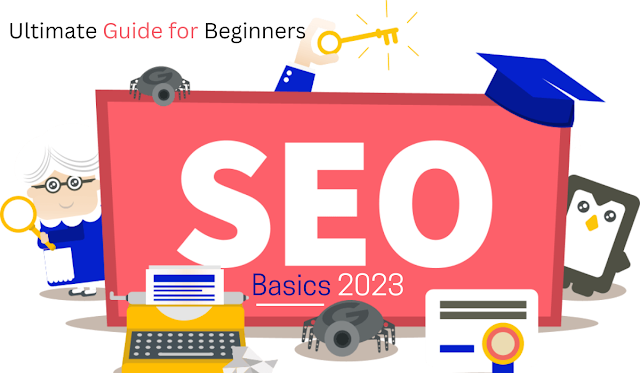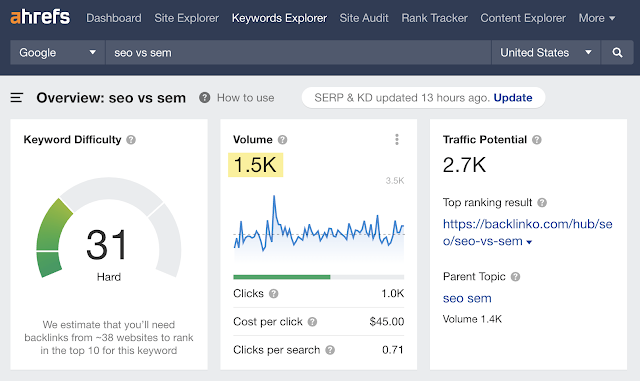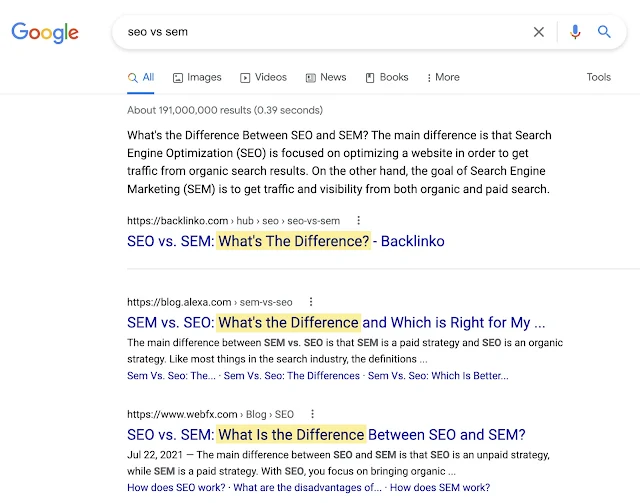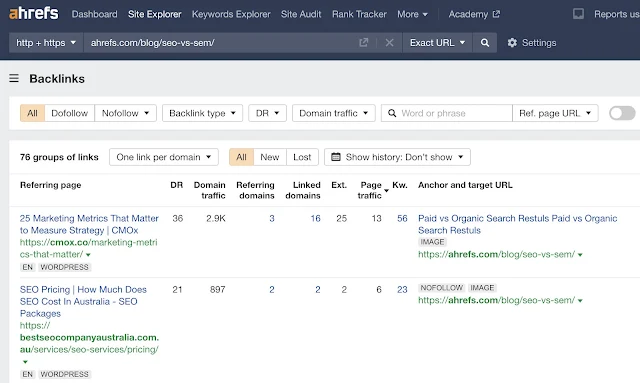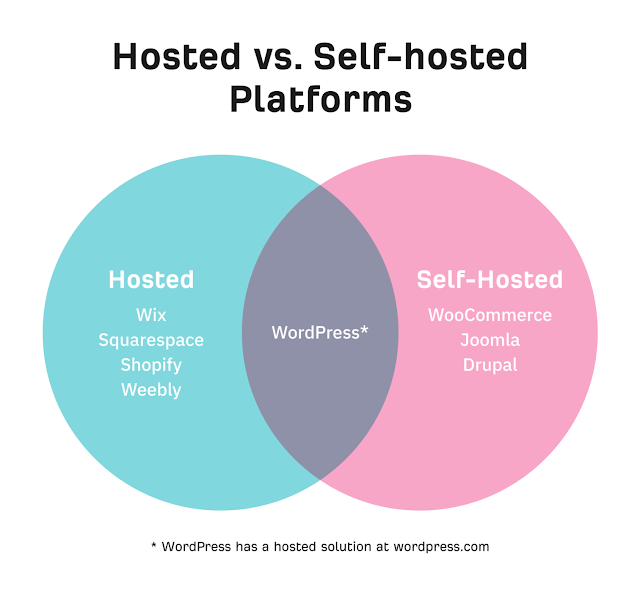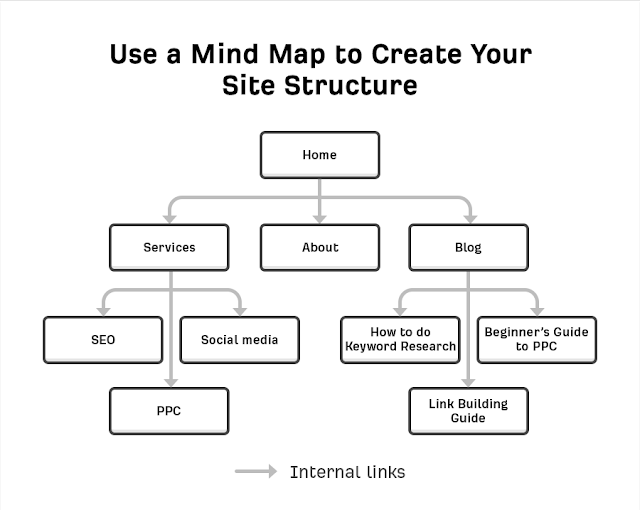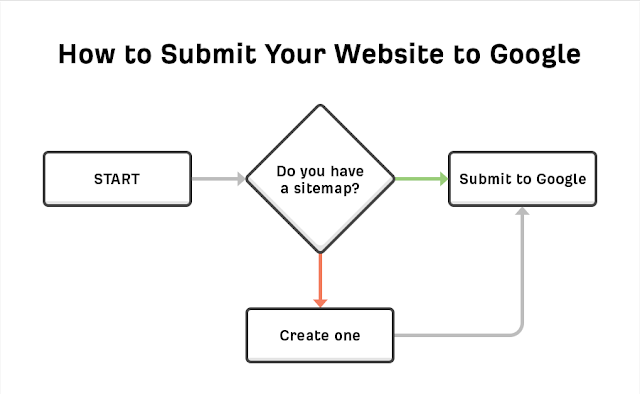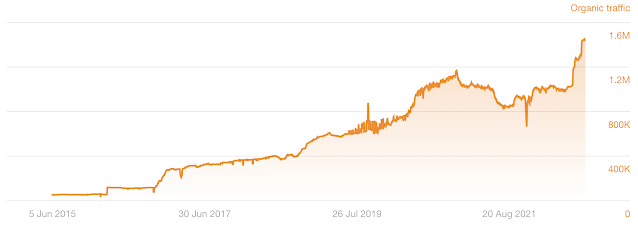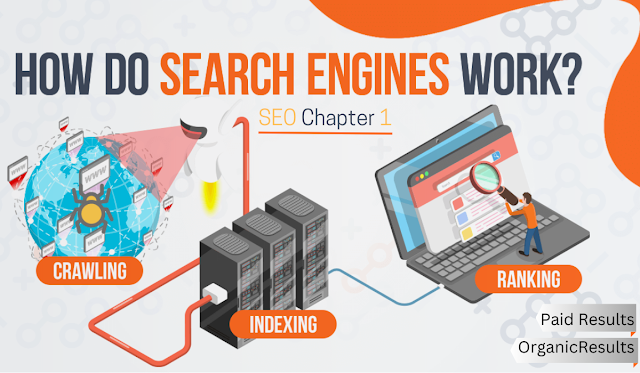SEO Basics 2023 Introduction with complete guide for beginners that why SEO is important ?, How to achieve SEO success. SEO Basics 2023 Chapter 2 with 4 main Topics
At Written Updatez, we write SEO friendly and unique content for you. We have many blog posts related to SEO factors for giving you meaningful & useful information.
If you find any mistake in this article then inform me by the comment box which is in the last of this article.
In this 2nd chapter of SEO series we learn the fundamentals of SEO, its importance, its benefits, achieve SEO success & others about the SEO basics. I divided the chapter into 4 main topics in which we easily understand SEO basics 2023.
In the first topic
of this chapter we discuss the fundamentals of SEO, why SEO is important for beginners, what the benefits of SEO are and more about SEO types.
What is SEO (for Beginners) ?
SEO helps websites rank higher in search engines by improving their content and structure, generating more traffic and sales. Techniques include keyword research, on-page optimization, and link building.
Natural sharing: When others share your content without you promoting it.
Helpful content: Creating content your audience enjoys can help your website rank higher in search results.
Google indexing: Making your website easy for Google to understand and find your content.
Relevant keywords: Using words your audience searches for in your content can help your website show up in relevant search results.
There are many types of SEO (Search Engine Optimization) but in this series we can only discuss four main types of SEO.
1- Keyword Research
2- On-page SEO
3- Off-page SEO
4- Technical SEO
Here are the complete details of SEO types to get higher traffic or rank 1.
1- Keyword Research
Keyword research is all about understanding the words and phrases your customers are typing into search engines. You can do this with keyword research tools such as Ahrefs, SEmrush & more.
Some factors:
Find popular words people use to search for your website's topic.
Use keyword tools to find popular keywords.
Focus on using longer, specific phrases called long-tail keywords.
Put keywords in your website's content to help it appear in search results.
2- On-page SEO
On-page SEO optimised web pages for search engines by optimizing content, tags, URLs, images and links. The goal is to make pages more relevant and authoritative for specific search queries, which can increase website traffic.
Some factors:
Make sure your content is relevant to specific search queries.
Create a clear and easy-to-navigate structure for your web pages.
Use unique and valuable content that your audience will find useful.
Include keywords in strategic locations such as titles, headings, meta descriptions, and text.
Use short and readable URLs that accurately describe the content of the page.
3- Off-page SEO
Off-page SEO is where you do things outside of your site to show Google that your pages deserve to be ranked. Building high-quality backlinks is one of the most effective off-page SEO tasks because backlinks are one of the top three ranking factors in Google. They work just like votes on other websites.
Some factors:
Backlinks from other websites
Social media engagement related to your website
Listing your website on relevant online directories
Positive brand mentions on other websites
Guest blogging on other relevant websites
Positive reviews of your brand on review websites
4- Technical SEO
Technical SEO is about making sure that search engines can find, crawl and index your content. Unless the search engines can do all three of these things, you are unlikely to rank.
Some factors:
Quick website loading for better rankings.
Mobile device-friendly website for better rankings.
Organized website structure for easy crawling by search engines.
File that lists all website pages for search engines to easily index.
File that directs search engines which pages to crawl or avoid.
Secure protocol to improve rankings and protect user data.
Why is SEO Important ? (Search Engine Optimization)
You've probably heard hundreds of times that search engine optimization (SEO) is an essential digital marketing tool. But do you really know how SEO works? Even if you have a basic understanding of what it entails, you may not have a strong understanding of this complex and multifaceted phenomenon.
SEO is many things, and knowing what it is and how it works is key to understanding why SEO is so important. In short, SEO is important because it increases your website's visibility, which means more traffic and more opportunities to convert prospects into customers. Check out the SEO tools you can use to improve your rankings.
It's also a valuable tool for increasing brand awareness, building relationships with potential customers, and establishing yourself as an authoritative and trusted expert in your field. So, here's everything you need to know about SEO and why it's so important to succeed in today's digital world.
What are the Benefits of SEO ?
SEO means optimizing your website so that it appears higher on Google when people search for things related to your website. It can bring more people to your website and help you grow your business. It also makes it easier for people to use your website. SEO is a good way to advertise your business online without spending a lot of money and it can help your business in the long run.
How do you do SEO?
SEO Basics 2023 involves five main steps:
Keyword research
Content creation
On-page SEO
Link building
Technical SEO
In the second Topic
of this chapter we discuss the setting of SEO success or what are the requirements to achieve the SEO success, like good domain name, website hosting platform & more about the SEO success.
What are Good Domains ?
Good domains are ones that are easy to remember, relevant to the brand or business, and easy to spell. Here are some examples of good domains:
Facebook.com
Instagram.com
LinkedIn.com
Dropbox.com
Shopify.com
Writtenupdatez.com
Top-level Domain (TLD)
The top-level domain (TLD) is the part of a website's address that comes after the last period. There are two main types of TLDs: generic top-level domains (gTLDs) and country code top-level domains (ccTLDs).
Generic top-level domains (gTLDs) are not associated with a specific country or region and are typically used for business, educational and organizational websites. Examples of gTLDs include .com, .net, and .org.
Country code top-level domains (ccTLDs) are associated with specific countries or regions and are typically used by companies or organizations that are based in a specific country or want to target a specific regional market. Examples of ccTLDs include .uk for the United Kingdom and .ca for Canada.
There are also new gTLDs that have been introduced in recent years, such as .app, .shop, and .blog, among others, which give businesses and organizations more to choose from when choosing a domain name. Offer options.
When choosing a TLD, it's important to consider the audience and purpose of your website, as well as the availability of your desired domain name.
Use Good Hosted Platforms
Using a good hosting platform means using a service that helps you easily create and manage your website. You can choose a hosting platform that suits your needs and budget. Once you've signed up for an account, you can choose a domain name for your website and customize its appearance. You can add text, images and videos to your website using the platform's editor. By using a good hosting platform, you can save time and effort in building and managing your website.
Create a positive user experience on your site
Use HTTPS
Choose an appealing design
Make sure it’s mobile-friendly
Use a readable font size
Avoid intrusive pop-ups and ads
Make sure it loads fast
Create a logical structure in your site
Use Internal links because it is important.
They help search engines to find new pages on your site
They help pass PageRank around your site
They help search engines to understand what your page is about ?
Create a logical URL structure
URLs are like the street address of a website. They help people and search engines find and access web pages on the Internet. URLs provide important information about a website, such as who owns it and where it is located.
5 main topics of URL in wordpress websites:
- Plain: website.com/?p=123
- Day & name: website.com/2023/03/04/seo-basics/
- Month & name: website.com/03/04/seo-basics/
- Numeric: website.com/865/
- Post name: website.com/seo-basics/
Install SEO plugin
Is important because it helps you to write & create a unique SEO friendly article that rank higher in search engines.
In the third Topic
of the chapter we learn why sitemap is important to rank search engines, how to submit your sitemap ? & more about the sitemap indexing methods.
How to Submit Sitemap ?
Creating a sitemap using the generator tool:
Choose a sitemap generator tool, such as XML Sitemap Generator or Screaming Frog.
Enter your website URL in the generator tool.
Choose options for your sitemap, such as frequency of updates and priority of pages.
Click the "Generate" button to generate the sitemap.
Download the sitemap.xml file.
Upload the sitemap.xml file to the root directory of your website.
In the forth Topic
of this chapter we discuss how to rank in search engines with the help of SEO, getting organic traffic, Visibility & more about the SEO ranking factors.
Organic Traffic
Organic traffic is when people find your website through search engines without paid advertising. This means that they type the relevant keyword into the search engine and click on the link to your website that appears in the search results.
Organic traffic is important because it shows how well your website ranks in search engine results, which can be an indication of your website's relevance and authority in a particular topic or niche.
To increase your organic traffic, you need to improve the content and structure of your website to make it more search engine friendly, build links from other websites, and create high-quality content that is relevant to your website. Liked by the target audience.
Keyword Rankings
Keyword ranking is the position in which your website pages appear in search engine results for specific words or phrases that people are searching for. If your website appears higher in search results, more people are likely to click on it and visit your website.
Keyword ranking is affected by many factors, including the quality and relevance of your website content, the use of relevant keywords, and the number of high-quality links pointing to your website. To improve your keyword rankings, you need to research and use relevant keywords, optimize your website content, and build high-quality links to your website.
Closing Words
SEO is very important if you are working in a search engine and want to get high rank. We hope you are learning about this SEO series. In this 2nd chapter of the SEO series we hope to gain a lot of knowledge about SEO.

